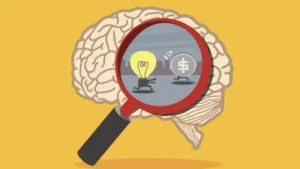When people think of ADHD, they often think of kids who can’t sit still in class or adults who are constantly fidgeting. While this may be true for some people with ADHD, there is another side to the disorder that is often overlooked: hyperfocus. People with hyperfocus can become so engrossed in a task that they lose all track of time and space. This type of concentration can be a blessing or a curse, depending on the situation. In this blog post, we will discuss how to improve your concentration and focus, whether you have ADHD or not!
Contents
What Is Hyper Focus ADHD?

Hyperfocus ADHD is not a separate disorder from ADHD, but rather a symptom of the disorder. People with ADHD often have difficulty sustaining attention on a task, but they may be able to hyperfocus on something that interests them. This can be both a blessing and a curse. On one hand, it can help you get things done that you’re passionate about; on the other hand, it can make it difficult to switch gears when you need to.
Causes
There is no single cause of hyperfocus ADHD. It is likely caused by a combination of genetic and environmental factors. ADHD runs in families, so there is likely a genetic component to the disorder. Additionally, people with ADHD often have an imbalance of certain brain chemicals, which can contribute to symptoms like hyperfocus.
Symptoms
The main symptom of hyperfocus ADHD is an intense concentration on a task or activity. This can make it difficult to switch gears and focus on something else, even if you need to. Other symptoms include:
- Restlessness
- Losing track of time
- Difficulty completing tasks
- Disorganization
- Procrastination
- Forgetfulness
- Impulsivity
Effects On Daily Life

Hyperfocus ADHD can affect every aspect of your life. If you’re unable to focus on your work or schoolwork, it can lead to problems with grades or job performance. difficulty sustaining attention can also make it hard to keep up with friends and family members. In severe cases, hyperfocus ADHD can even lead to social isolation.
ADHD is also known to cause problems with relationships. This can be due to difficulties with communication, impulsivity, and forgetfulness. If you have ADHD and are in a relationship, it’s important to be honest about your symptoms and discuss how they may be affecting your relationship.
Other areas of life that may be affected by hyperfocus ADHD include:
- Time management
- Money management
- Self-care
- Organization
- Chores and household tasks
Moreover, people with ADHD often have comorbid conditions, such as anxiety and depression. These disorders can compound the effects of ADHD and make everyday life even more challenging.
Treatment Options

While any form of ADHD does not have a permanent cure, some ways can help people manage and reduce the intensity of the symptoms.
Therapy
Cognitive Behavioral Therapy: Cognitive behavioral therapy (CBT) is a type of therapy that can be particularly helpful for people with ADHD. CBT focuses on changing negative thinking patterns and behaviors. It can help you to learn how to better manage your time, set goals, and stick to a schedule.
Support Groups: There are many support groups available for people with ADHD. These groups can provide a sense of community and understanding. They can also offer practical tips and advice for managing the disorder.
Psychotherapy: Psychotherapy is another type of therapy that can be helpful for people with ADHD. This type of therapy can help you to understand your thoughts and emotions and to develop coping strategies.
Medication
Medication often helps to treat ADHD. Stimulant medications are the most commonly prescribed type of medication for ADHD. These medications can help to improve focus and concentration. Non-Stimulant Medications are also non-stimulant medications that can help to treat ADHD. These medications may be less effective than stimulants, but they have fewer side effects.
Self Help Tips
If you have trouble concentrating or focusing, there are some things you can do to improve your ability to sustain attention:
- Natural Remedies: There are many natural remedies that people with ADHD use to improve their symptoms. Some of these remedies include omega-three supplements, magnesium, exercise, and meditation.
- Identify your triggers: What activities or tasks cause you to become hyperfocused? Once you know your triggers, you can try to avoid them or plan for them in advance. For example, if reading is a trigger for you, try reading for 20 minutes before bed instead of two hours. This will help you wind down without getting too caught up in the book.
- Get enough sleep: Most people need around eight hours of sleep per night, although this varies from person to person. If you’re not getting enough sleep, it will be difficult to focus during the day.
- Exercise: Exercise has been shown to improve attention and concentration. Even a short walk can help increase your alertness and ability to focus.
- Eat healthily: Eating a healthy diet is important for overall health, but it can also impact your ability to focus. Make sure you’re eating plenty of fruits, vegetables, and whole grains. Avoid sugary snacks and drinks that can cause crashes in blood sugar levels.
- Diet: There is no specific diet that has been proven to help with ADHD, but eating healthy foods and avoiding sugary and processed foods can be beneficial.
- Organization: One of the best ways to improve focus and concentration is to get organized. This means creating a schedule, setting goals, and making sure that your work area is free of clutter.
- Take breaks: It’s important to take breaks throughout the day, especially if you’re working on a task that is mentally demanding. Taking five-minute breaks every hour or so can help you refresh your mind and come back to your task with renewed focus.
- Find your optimal level of stimulation: Some people work better in complete silence, while others need some background noise to concentrate. Experiment with different levels of stimulation to see what helps you focus best.
- Use a planner: Having a visual representation of what you need to do can be helpful for people with ADHD. Use a daily or weekly planner to track your tasks and appointments.
- Break down tasks into smaller steps: If a task seems overwhelming, break it down into smaller steps that you can complete more easily. For example, if you’re studying for an exam, break the material down into smaller sections to focus on one at a time.
- Set deadlines: Setting deadlines for yourself can help you stay on track and avoid facing distractions and sidetracks in a task. Make sure the deadlines are realistic and give yourself some wiggle room in case you need it.
- Eliminate distractions: This may mean turning off your phone, working in a quiet area, or using noise-canceling headphones. Whatever works for you, eliminating distractions will help you focus better on the task at hand.
Conclusion
In conclusion, there are many things that you can do to improve your concentration and focus if you have ADHD. Stimulant medications can be effective, but they may also have side effects. Non-stimulant medications are an alternative option with fewer side effects. There are also many natural remedies and self-help tips that can help improve symptoms of ADHD. If you’re struggling with focus and concentration, try out some of these methods to see what works best for you.
For more information, please contact MantraCare. ADHD is a neurodevelopmental disorder characterized by difficulty in paying attention, hyperactivity, and impulsivity. If you have any queries regarding Online ADHD Counseling experienced therapists at MantraCare can help: Book a trial ADHD therapy session


